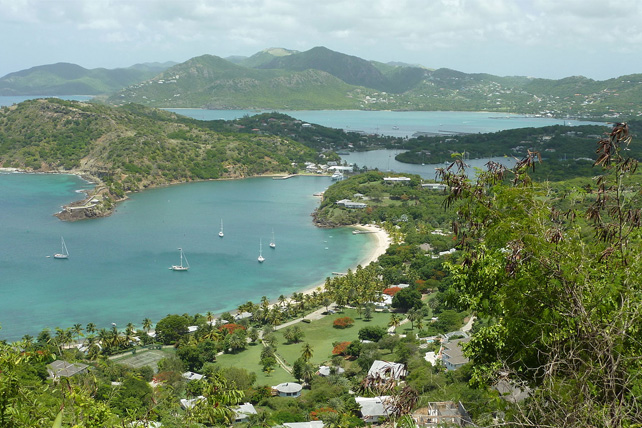Legislators in Antigua and Barbuda’s lower house have voted to decriminalise cannabis possession, allow Rastafarians to use cannabis ritually, and expunge prior possession convictions.
On February 6, legislators in the Caribbean nation's House of Representatives voted to approve the Misuse of Drugs (Amendment) Bill. The bill, which has support from Prime Minister Gaston Browne, seeks to decriminalise the possession of less than 10 grams of cannabis for all adults, and allow Rastafarian people to legally use cannabis during religious rituals and ceremonies. It also aims to offset harms that criminalisation has caused by expunging prior convictions for minor cannabis offences.
Cannabis has been illegal in the multi-island nation of Antigua and Barbuda since Governor Wilfred Jacobs signed the Misuse of Drugs Act 1973 into law, while the country was ruled by the British Empire.
Speaking at the parliamentary debate on cannabis, Prime Minister Browne recalled personally witnessing police using excessive force against Rastafarian people for alleged cannabis offences prior to the country gaining independence from British rulers.
“[The police] were rampant. Just the smell of marijuana, they would literally go into people’s private homes and literally abuse them […] I recall a couple of times I see guys running, literally running from police officers even before they approached them because they knew the consequences. The consequences were not just prosecution. It was also brutalisation,” Browne said, according to the Antigua Observer, “I want to take this opportunity to apologise to the family members of those individuals for the abuse that would have taken place over the decades”.
The bill is awaiting approval from the country’s upper house, the Senate, before passing in to law – but PM Browne has already made a direct plea to police officers to stop prosecuting people for cannabis use.
“I want to signal to the members of the police force, in the interim, that they desist from incriminating individuals,” he said in an interview with Pointe FM. “The government has made its policy very clear. Even though the law has not been changed, at least they must respect the intent and give those who use marijuana a break”.
The bill outlines that no adult can be charged for simply possessing under 10 grams of cannabis, but that smoking cannabis in a public place can potentially lead to a conviction. People found smoking cannabis in public should face a warning and a ticket on their first and second offence respectively, but "third or subsequent occasion offenders" could face a conviction and a fine of up to $1500, the bill states. Rastafarian people would be exempt from this rule in certain circumstances, as the bill would permit them to use "cannabis in a lawful way during sacred ritual ceremonies".
Samantha Marshall MP – head of the government's cannabis commission – warned that the wider public should understand that this is not full legalisation, and that “the use of that substance should be in your private home”.
Antigua and Barbuda's cannabis bill goes further than similar legislation abroad in undoing the consequences of criminalisation, as it would work retrospectively. According to Clause 6 of the bill, any person convicted for an offence involving 10 grams of cannabis or less – regardless of the offence – would have their conviction "spent and expunged".
While the bill is yet to be approved by the Senate, its significant cross-party political support suggests that it is likely to proceed smoothly into law. Prime Minister Browne believes that it should have strong support among the public too: “The use of marijuana is now socially acceptable,” he said, “it is, in essence, a part of the culture of the country.”
Update: On 5 March 2018, the Misuse of Drugs (Amendment) Act 2018 took effect – meaning that the possession of 15 grams of cannabis or less (by an adult) is no loonger a criminal offence.


